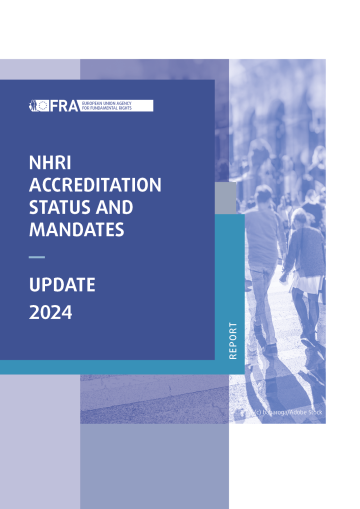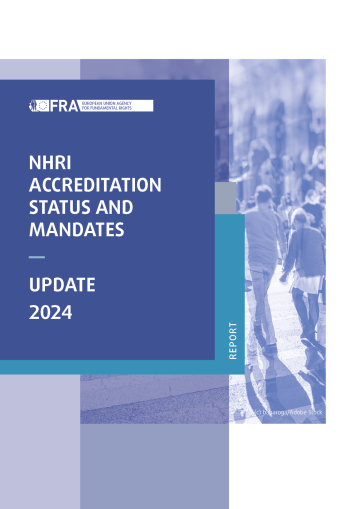National Human Rights Institutions (NHRIs) continue to play a key role in upholding fundamental rights. The European Commission called NHRIs a “core element in the system of checks and balances” in its 2023 annual rule of law report.[1] European Commission, 2023 Rule of Law Report The rule of law situation in the European Union, available at: https://eur-lex.europa.eu/legal-content/EN/TXT/?uri=CELEX:52023DC0800
The mandate of the NHRIs is based on the UN General Assembly’s Paris Principles of 1993 ('Principles Relating to the Status of National Human Rights Institutions'). They provide the basis for assessing the independence and effectiveness of national human rights institutions. The Global Alliance of National Human Rights Institutions (GANHRI) uses the Paris Principles to determine the international accreditation status of national human rights institutions, distinguishing between A-level NHRI (full compliance) and B-level NHRI (partial compliance) with the Paris Principles.
Since the publication of its 2020 report Strong and effective national human rights institutions – challenges, promising practices and opportunities, the European Union Agency for Fundamental Rights (FRA) has been regularly tracking the accreditation status and the mandates of the NHRIs. This December 2023 Update covers not only the accreditation status (section 1) and the mandates (section 2), but also additional aspects, namely the role of NHRIs in the context of EU funds (section 3) and the use of the EU Charter of Fundamental Rights (section 4). In this latest Update, the data utilized for certain countries remains consistent with that provided in the December 2022 Update.
Methodology
The information contained in this report was collected through primary and secondary sources:
-
Primary sources
- Questionnaire sent to NHRIs
-
Secondary sources
- Desk research
FRA collected data through questionnaires sent to the 27 EU Member States and the three accession countries falling within FRA’s mandate – North Macedonia, Serbia and Albania. This was carried out between September and December 2023. All 35 NHRIs/ENNHRI members received FRA’s questionnaire; 31 responded, although some opted to not answer to all sections of the questionnaire. Additional desk research was conducted during the same period. In cases where no response was received, this is marked in the respective tables.[2] Cells including ** in Tables 2, 4, 5 and 6 indicate NHRIs that have not provided answers to the survey.






